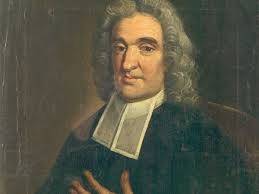 John Flamsteed's father was a business man who was quite wealthy. Flamsteed's mother however died when he was still a child and this affected his upbringing.
John Flamsteed's father was a business man who was quite wealthy. Flamsteed's mother however died when he was still a child and this affected his upbringing.
Flamsteed attended Derby free school which prepared children for a university education. However life did not go smoothly for Flamsteed who, at the age of 14, developed severe health problems. A chronic rheumatic condition led to his father deciding not to send him to university. Flamsteed was extremely disappointed but he did not let it prevent him from studying.
Between 1662 and 1669 Flamsteed studied astronomy on his own without the help of teachers. In fact he does not seem to have missed the formal teaching but his father opposed his studies and this made far more difficulties for Flamsteed than the fact that he could not attend lectures.
Flamsteed began systematic observations in 1671. He also began corresponding with Henry Oldenburg and John Collins. These two arranged for Flamsteed to meet Jonas Moore during a visit Flamsteed made to the Royal Society in London in 1670. Moore became his patron and persuaded Charles II to grant a warrant so that Jesus College Cambridge could award an M.A. to Flamsteed in 1674.
In February 1675 Flamsteed arrived in London to stay with Moore and Moore arranged that Flamsteed visit the King, Charles II, to ask for a Royal Observatory. In fact Flamsteed had to some extent paved the way to find favour with the King, having made a barometer and a thermometer for Charles II and the Duke of York in previous year. On 4 March 1675 the King appointed Flamsteed his astronomical observer by Royal Warrant. From his salary of £100 he had to pay £10 taxes and also provide all his own instruments. The Royal Observatory at Greenwich was built and equipped for his observations and he began observing there in 1676.
Ordained in 1675, Flamsteed received the income of the living of Burstow, Surrey from 1684. In 1677 he was elected a fellow of the Royal Society.
Flamsteed was a skilled observer and had a number of observing programmes at the Royal Observatory to answer major questions. Among his other achievements was the fact that Flamsteed invented the conical projection, an important projection of the sphere onto a plane which is used in cartography.
Newton required data for his understanding of the orbit of the Moon, a difficult problem to which Newton applied his universal law of gravity. Flamsteed never quite seemed to understand what Newton required and the two were not on the best of terms, in fact Flamsteed was a perfectionist and was not an easy man to get on with.